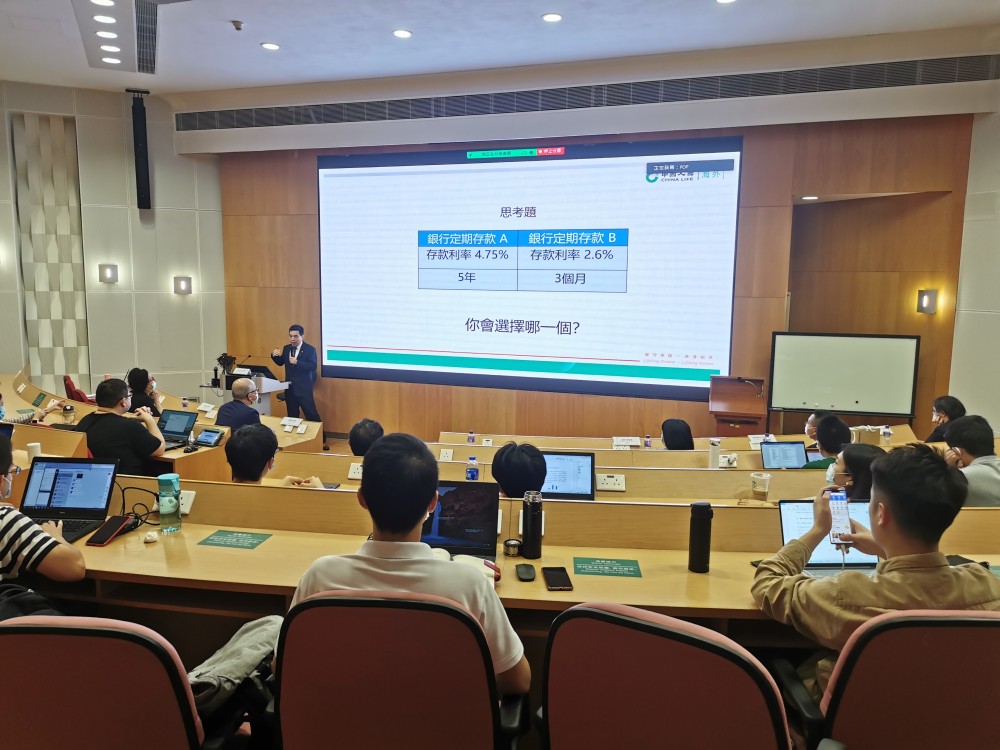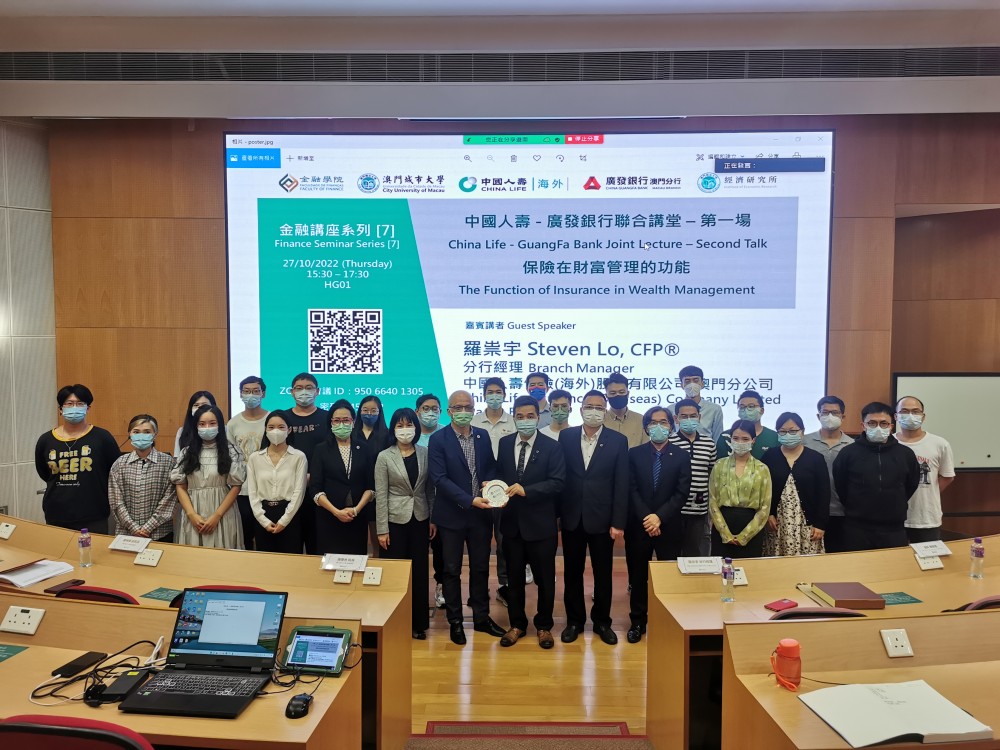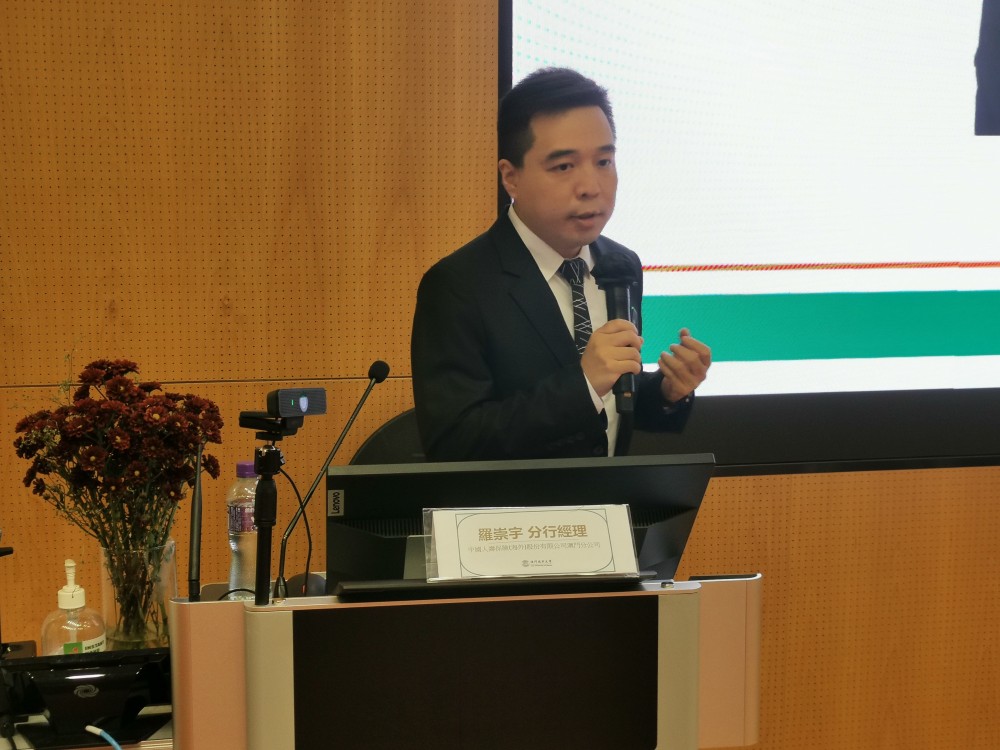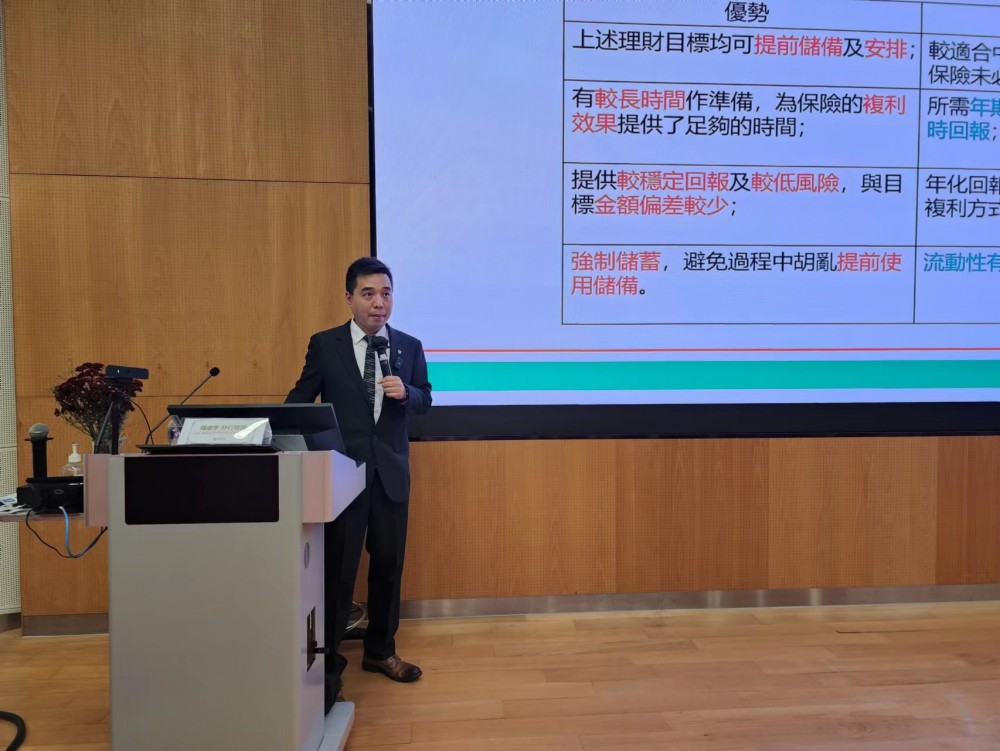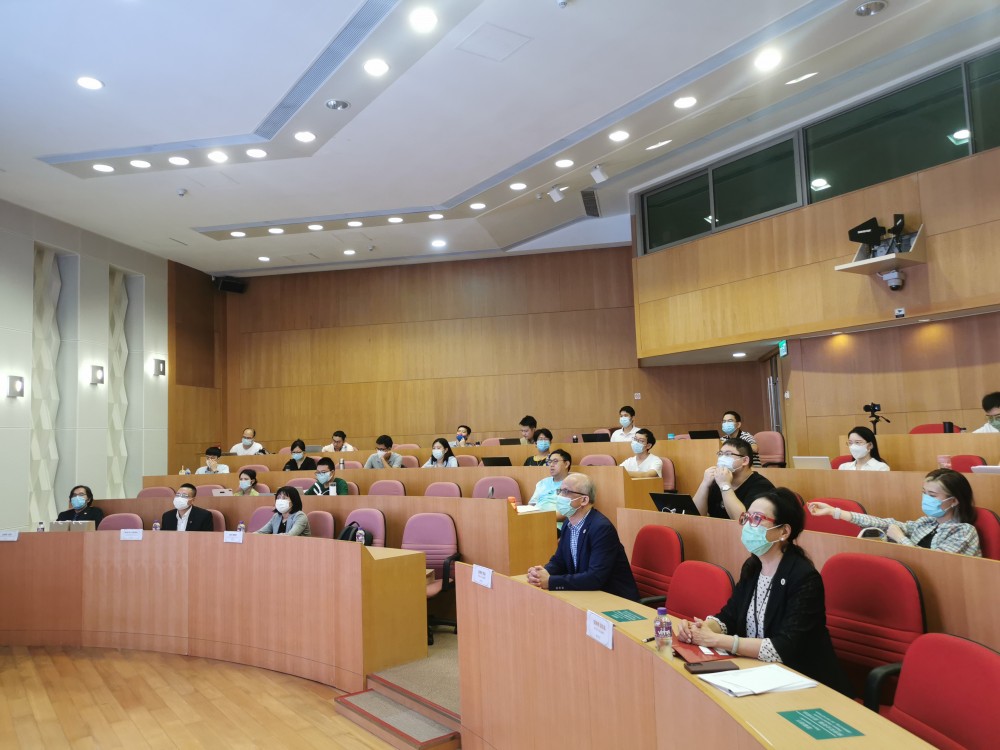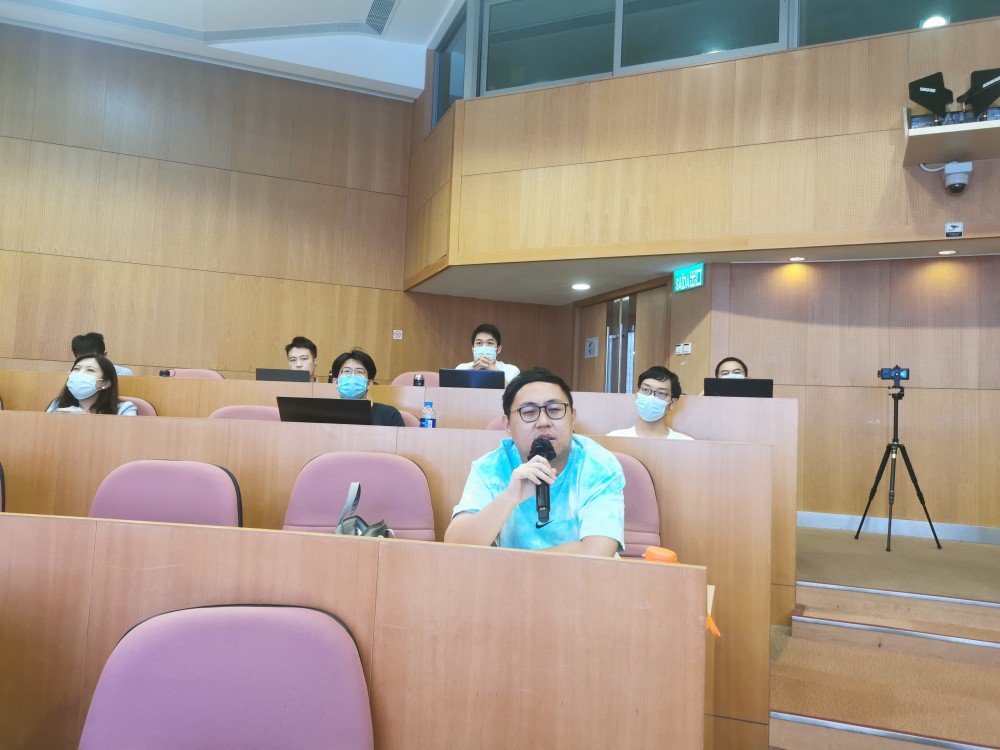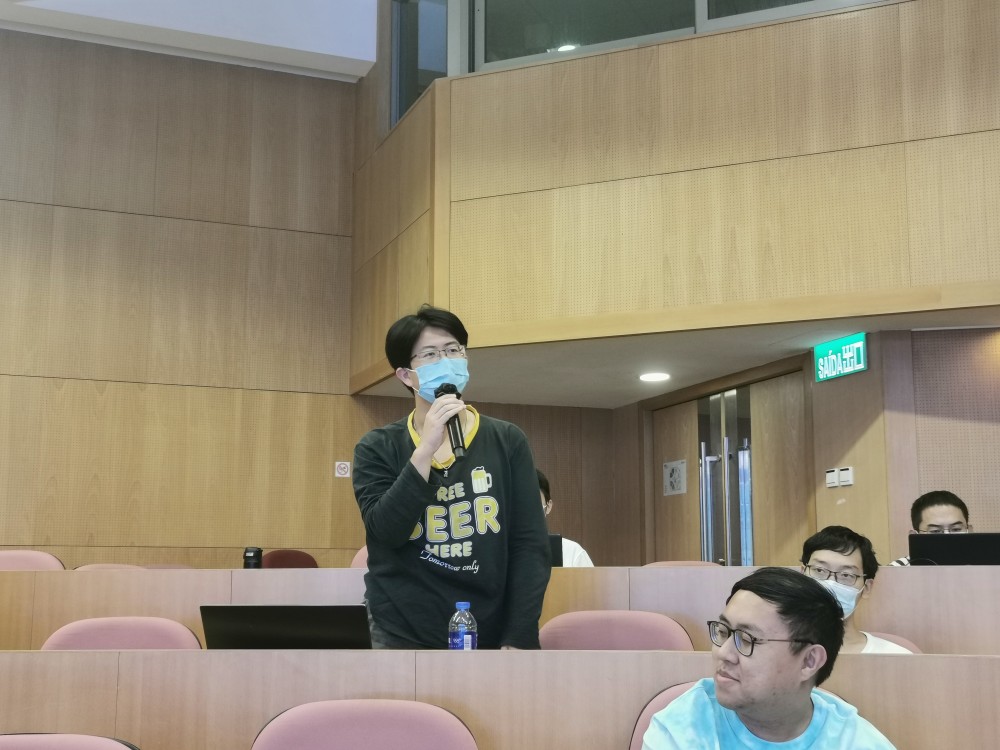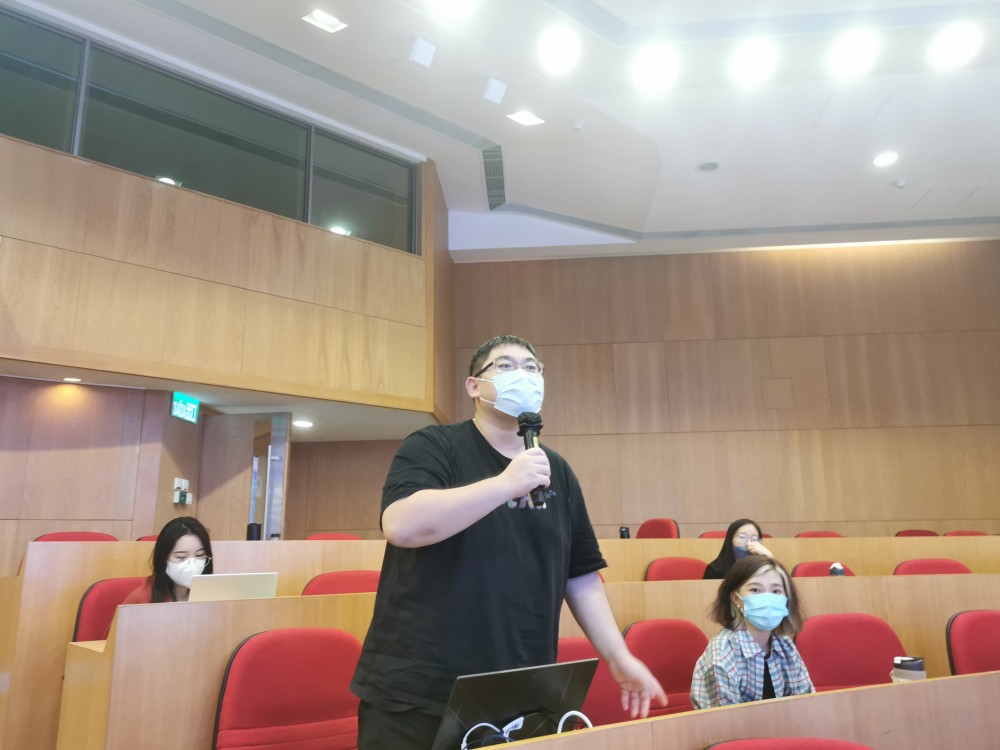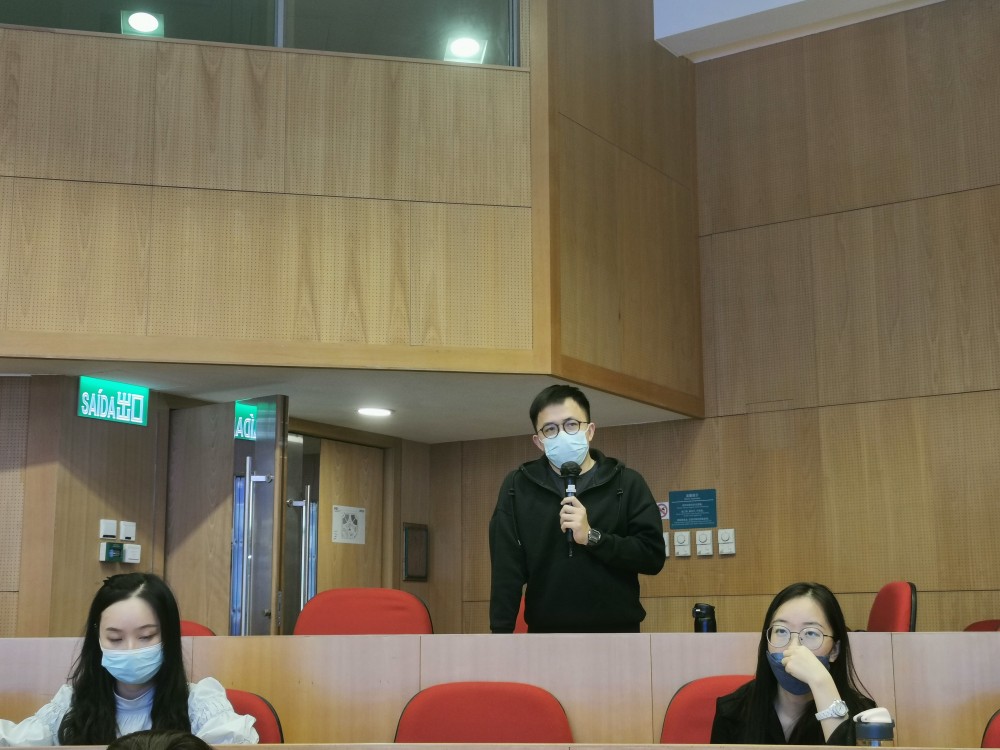On 27 October 2022, the Faculty of Finance of the City University of Macao held the Finance Seminar Series [7] China Life – GuangFa Bank Joint Lecture – Second Talk at the Ho Yin Convention Centre. Mr Steven Lo, Branch Manager of China Life Insurance (Overseas) Company Limited Macau Branch, was invited to deliver a speech titled “The Function of Insurance in Wealth Management”. Guests attending this seminar include Ms Jin Ling, Head of the Comprehensive Management Department, Mr Paul Chan, Head of the Personal Agent Department and Mr Chaohui Jin, Senior Branch Manager, China Life Insurance (Overseas) Company Limited Macau Branch; Dean Adrian Cheung and Associate Dean Eva Khong, City University of Macao.
Mr Steven Lo first proposed the concept of “impossible triangle or trinity” in financial products. In international finance, the "impossible triangle" means that it is impossible for a country to achieve free capital flow, fixed exchange rate and sovereign monetary policy at the same time. If a country allows capital flow and has a sovereign monetary policy, it is difficult to maintain exchange rate stability. On the contrary, if it requires a fixed exchange rate and capital flow, it must give up sovereign monetary policy. There is also an "impossible triangle" in financial products, which is difficult to meet the three elements of financial products, i.e., security, income and liquidity at the same time, so it is necessary to choose between the three factors when making an investment. Mr Lo pointed out that common financial products such as deposits, stocks, bonds, real estate and insurance are tools to achieve financial planning, and their attributes can be learned and understood by the public, but they are not the ultimate goal of financial management.
Financial planning is to achieve customers' financial goals through appropriate financial management. The scope of financial planning covers all aspects of life related to finance, including wealth management, insurance planning, investment planning, tax planning, retirement planning and heritage planning. Mr Lo mentioned that, in practice, the portfolio composed of investment alone may not be the soundest financial portfolio, and the portfolio that can cooperate with each other and give full play to their respective advantages is the best financial portfolio.
Later, Mr Lo introduced the scope of various financial planning one by one.
Wealth Management: Wealth management refers to the preparation of sufficient funds through savings or investment to achieve different goals in life, such as marriage, real estate, Child-rearing, children’s education reserves and retirement arrangements. The application of savings insurance in wealth management has the advantages of being able to reserve in advance, compound interest effect, stable returns, mandatory savings, etc., but also has the disadvantages of long-term, less annual return than investment products, limited liquidity, etc.
Insurance Planning: Insurance is one of the ways to manage risks, so that the public can effectively deal with or transfer risks. Mr Lo introduced three common approaches for calculating life insurance demand, namely, the human life value approach, the needs approach and the capital retention approach. The human life value approach refers to the present value of life calculated by the current economic situation of an individual, and then earned in the future; The needs approach analysis when the main earning member of the family dies, the funds needed by the family are used to calculate the amount of life insurance coverage, such as family living funds, children's education expenses, mortgage, elder support fees and funeral expenses, etc.; The capital retention approach can be called the approach of “eating interest without paying the cost”. First, prepare the personal balance sheet, find out the assets that can generate income, and then estimate the assets that need to be increased.
Retirement Planning: The focus of retirement financial planning is to ensure that the assets on hand will not be eroded by inflation. Therefore, it is necessary to consider the characteristics of value preservation, tax saving or exemption, and anti-inflation when selecting investment tools. It is not advisable to place too much reserves on overly conservative tools, such as capital protection funds, because the rate of return will not catch up with inflation, but also avoid investment tools with too high risk as capital protection is more important than profit-seeking. Traditionally, citizens should plan retirement in advance. Annuity is one of the main tools. Annuity is a long-term insurance product, not a bank deposit or savings plan. Its role is to help policyholders convert funds into long-term stable cash income, so that they can use retirement savings in a disciplined manner to deal with the financial risks brought about by longevity. The applicant pays the funds to the insurance company, and then can immediately or at the specified age, obtain the annuity income distributed by the insurance company in installments until the period specified in the contract. The modern sense of retirement is to implement financial independence. Financial independence refers to the state that the passive income generated by assets is equal to or more than the daily expenses.
Estate Planning: The purpose of estate planning is to ensure that there are sufficient assets in the estate, so that the estate owner can achieve his/her wishes after death. The value of the estate will not be excessively eroded by taxation and other charges. The process of transferring assets is the responsibility of the appropriate person, and the assets will be transferred to the beneficiaries at a time determined by the estate owner. This is an ongoing process, including insurance, the setup of a will and the establishment of a trust. Due to legal regulations in Macau, it is necessary to pay attention to a special reservation arrangement in the inheritance arrangement. The purpose is to ensure that the close relatives of the deceased can receive a certain share of the estate. Even if the deceased has a will, this part of the property cannot be freely handled and distributed according to their wishes, which is called the legally reserved portion, and the person who inherits this part of the estate is called the forced heir. If the trustor wants to give a sum of property to the beneficiary, but the trustor wants to plan the application of this property, he can set up a trust and entrust the trustee to execute it. The advantages of establishing a trust include that regular payment can be set, the trustor still holds the master control, has the effect of adjusting the tax time point and discount calculation, and others cannot interfere, etc. The disadvantages include that the capital threshold and cost are high, and assets cannot be used at will. An insurance trust is a financial product combining insurance and trust. With insurance money as trust property, the insurance beneficiary and the trust institution sign an insurance money trust contract. When the insured dies and the claim money enters the trust, the trust institution manages and uses the trust property in accordance with the trust contract, and distributes the trust property to the beneficiary in accordance with the trust contract, and delivers the remaining assets to the trust beneficiary when the trust period ends.
Investment Planning: Investment is choosing appropriate investment tools to earn expected returns and add value to one’s wealth in the long run according to the financial goals and risk tolerance through comprehensive financial planning.
Tax Planning: Tax payment is an expenditure. If effective and legal tax planning and arrangements can be made through current tax regulations and deductible items, the tax payable can be minimized. In addition to avoiding the impact on the taxpayer's cash flow or financial situation, if the saved funds can be made good use for appropriate investment, value can be added to the wealth. Tax avoidance refers to reducing taxable items, delaying tax payments, or even exempting tax through legal planning and arrangement. Tax evasion refers to the deliberate misrepresentation or concealment of expenditure in order to evade taxes illegally, which is illegal and involves criminal offenses.
Mr Lo shared a number of practical cases for analysis and discussion with students. At the end of the sharing session, the students took this valuable opportunity to actively pose questions related to investment and financial management, and Mr Lo answered in detail. In the Seminar, students paid attention to the role of insurance in financial planning, and gained a lot through the financial seminar series. The students also expressed their expectations for the sharing of the next finance seminar.



